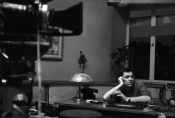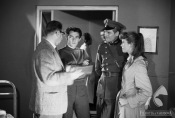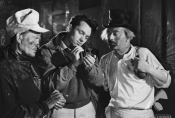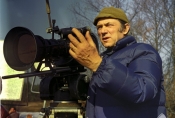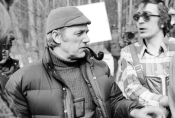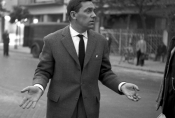Tadeusz Chmielewski
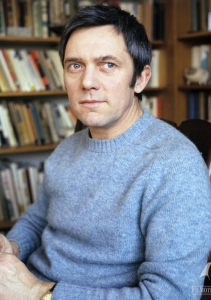
Director, screenwriter, film producer. He was born on June 7, 1927 in Tomaszów Mazowiecki. A graduate of the Department of Directing of the State Film School in Łódź (1954). He started as an assistant director, including the film Podhale w ogniu/Podhale Ablaze (1955) directed by Jan Batory. His first independent film was a comedy (quite original for Polish cinema at the time), Ewa chce spać/Eve Wants to Sleep (1957), based on his own script with dialogue by Jeremi Przybora; the film won the Grand Prix at the San Sebastian festival. He later directed several other comedies based on his own scripts, earning him the accolade of the master of the genre: in the 1960s, he made: Walet pikowy/Jack of Spades, Gdzie jest generał…/Where is General ..., Pieczone gołąbki/Roast Pigeons, and the trilogy Jak rozpętałem drugą wojnę światową/How I Started World War Two (a huge box office hit), and in the 1970s: Nie lubię poniedziałku/I Hate Mondays (an excellent multilayered portrait of a big city) and Wiosna, panie sierżancie/Springtime, Sergeant. He made two thrillers: Dwaj panowie „N”/The Two Gentlemen (1961) and Wśród nocnej ciszy/In the Silence of the Night (1978). In 1983, he directed the highly acclaimed film adaptation of Stefan Żeromski’s Wierna rzeka/Faithful River, withheld by the censor and released four years later. Chmielewski won the best director award at the Polish Film Festival in Gdynia in 1987.
Since 1984, he has served as artistic director of “Oko“ Film Studio, producing films such as Och, Karol/Oh, Charles, Kogel mogel, Wrony/Crows, U Pana Boga w ogródku/God’s Little Garden and U Pana Boga za miedzą/God’s Little Village. Using the pen-name of Zofia Miller, he also wrote the screenplay for the first part of the popular trilogy, directed by Jacek Bromski, U Pana Boga za piecem/In Heaven As It Is On Earth (1998).
At the State Film School, he has been teaching screenwriting for many years. He is an activist in the Polish Filmmakers Association (in 1983-1987, he served as deputy president); he has been involved in many initiatives to protect the rights of artists. For his contribution to arts, he has received many awards, including the Lifetime Achievement Award of the Polish Filmmakers Association (2010), the Eagle Award for Lifetime Achievement (2011) and the annual Award of the Minister of Culture and National Heritage (2008). He also received the title of Honorary Ambassador of the city of Tomaszów Mazowiecki.
Beata Pieńkowska
Selected filmography
-
1957
EVE WANTS TO SLEEP
-
1983
FAITHFUL RIVER
